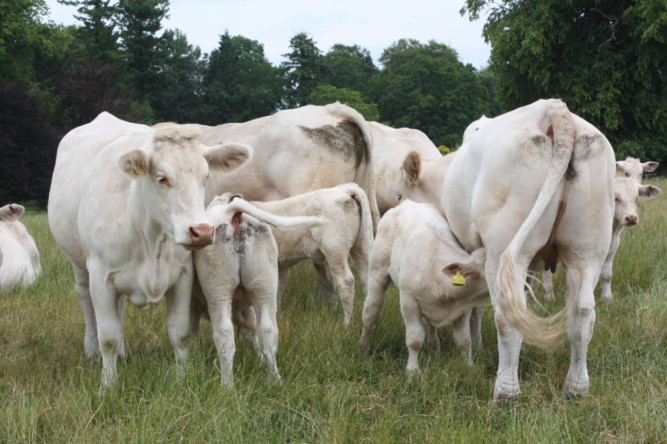
Scottish beef is one of the more natural foods there is.
How much would you pay for a good steak? Someone asked me this recently and I struggled to answer. Not because I don’t eat them as beef breeders we tend to eat what we produce ourselves and as there’s nothing to beat
well-hung Aberdeen Angus steaks, so we’re spoilt.
However, we don’t dine on them every day and it’s better to eat a little of something that’s good quality than a lot of poor quality stuff.
As the horsemeat scandal earlier in the year showed, buying good quality basic ingredients such as Scottish beef is far better than cheaper stuff that’s been shipped around the world and contains Goodness knows what.
But even when you’re being offered the best of the best I guess there has to be an upper price limit, even for the most well-off amongst us. I thought I’d found out my limit lay when I visited a farm that produces Wagyu beef.
This richly marbled meat is a Japanese delicacy and it sells for up to £250 a kilo!
Apparently the difference between Wagyu beef and normal stuff is because the breeding and how the product is grown and handled results in a totally different taste experience.
The animals are fed a special diet but it takes almost twice as long to fatten them as other cattle, so Wagyus live a longer life.
Recently, a news story made the price of this top-of-the-range delicacy look a bit like something that you might snap up in a Pound shop.
For the so-called £250,000 burger, made from synthetically grown meat seemed to set a new record for a morsel of beef.
But despite the price the lab-grown beef didn’t impress on the taste side, being described as “meat-like” in texture but, due to the absence of fat, lacking in taste.
The scientist who had created the synthetic burger seemed to think that, despite the poor reviews, lab-made burgers could be in supermarkets in the next 10 years.
Few farmers are convinced of the need for lab-grown meat though. The way cattle are reared in Scotland fed on grass from fields and hills which often couldn’t grow any other crops makes our beef one of the most natural foods there is.
Not only does beef production utilise land which couldn’t really be put to any other use but wildlife organisations recognise it’s also good for keeping upland habitats going.
And red meat production ploughs more than £2 billion to Scotland’s economy and supports around 50,000 jobs.
So, when the chips are down, I know which steaks I’ll be betting on.

Enjoy the convenience of having The Sunday Post delivered as a digital ePaper straight to your smartphone, tablet or computer.
Subscribe for only £5.49 a month and enjoy all the benefits of the printed paper as a digital replica.
Subscribe